Photo Copyright: kyrien
"This hope we have as an anchor of the soul, a hope both sure and steadfast and one which enters within the veil." (Hebrews 6:19)
"When all around my soul gives way, he then is all my hope and stay." -- Edward Mote (1797-1874), writer of the hymn, "My Hope is Built" (Ref. 1, Ref. 2).
Consider. When the storms of life come, in whom or in what is your soul secure, even when tossed by waves of trouble, grief, or loss? What is the anchor for your soul?
Hope Is an Anchor for the Soul
"This hope [this confident assurance] we have as an anchor of the soul [it cannot slip and it cannot break down under whatever pressure bears upon it]—a safe and steadfast hope that enters within the veil [of the heavenly temple, that most Holy Place in which the very presence of God dwells]." (Hebrews 6:19 AMP)
For believers in Jesus Christ, our hope -- our expectation for the future and our confident assurance for the present -- is an anchor for our soul (Hebrews 6:19). Hope accomplishes for our soul the same thing an anchor does for a ship (Ref. 3). In the same way that an anchor holds a ship sure and steadfast through a storm, our hope of heaven and eternal life with Christ holds us firmly and keeps us calm through the difficult storms of life. Our hope of heaven and eternal life with Christ cannot slip and it cannot break down under whatever pressure bears upon it (Hebrews 6:19 AMP). Edward Mote referred to Christ and to hope when he wrote the hymn line, "When all around my soul gives way, he then is all my hope and stay" (Ref. 1, Ref. 2).
Which enters within the veil
The writer of Hebrews adds that this hope set before us is "one which enters within the veil" (Hebrews 6:19). The Amplified Bible describes the veil as "the heavenly temple, that most Holy Place in which the very presence of God dwells" (Hebrews 6:19 AMP).
Recall that under the Old Testament system, the Most Holy Place, the innermost and most sacred place in the tabernacle and later the temple, was separated from the Holy Place by a veil (a curtain) (Exodus 26:31-33, 1 Kings 6:14-19, Hebrews 9:3). The Most Holy Place contained the ark of the covenant which was the symbol for the presence of God (1 Kings 8:6, 10-11). Only one person, the high priest, entered the Most Holy Place one day a year taking blood to atone for the sins of himself and the people (Hebrews 9:3, 6-7). During Jesus' earthly life, he did not enter the Most Holy Place in the human-made temple in Jerusalem. However, when Jesus Christ, the Messiah, the Son of God died sacrificially to atone for our sins, the veil of the temple was torn in two from top to bottom (Mark 15:37-39). Jesus Christ gained direct access for us to the holy place in heaven, the presence of God (Hebrews 9:24, Hebrews 10:19-21). Now, as believers in Christ, our hope has entered within the veil and is surely anchored in heaven, in the presence of God. Edward Mote wrote the hymn line, "In every high and stormy gale, my anchor holds within the veil" (Ref. 1, Ref. 2). A Living Hope (1 Peter 1:3)
"Blessed be the God and Father of our Lord Jesus Christ, who according to His great mercy has caused us to be born again to a living hope through the resurrection of Jesus Christ from the dead" (1 Peter 1:3).
Without the resurrection of Jesus Christ, there would be no anchor for our soul -- no hope, no eternal life. However, because of God's great mercy, and because of the death and resurrection of Jesus Christ, we do have an anchor for our soul. God has given us a secure living hope through believing in his Son and in his resurrection (John 11:25-26, 1 Peter 1:3). Jesus said to Martha, "I am the resurrection and the life; the one who believes in Me will live, even if he dies, and everyone who lives and believes in Me will never die. Do you believe this?" (John 11:25-26). A Hope that Abounds (Romans 15:13)
"Now may the God of hope fill you with all joy and peace in believing, so that you will abound in hope by the power of the Holy Spirit" (Romans 15:13).
The Apostle Paul prays for us as believers that God will fill us with joy and peace not just that we will have hope, but that we will abound in hope (Romans 15:13). The Greek word for abound means to overflow beyond measure (Ref. 4). The power of the Holy Spirit fills us with joy and peace, and our hope does abound -- a full assurance of hope until the end (Hebrews 6:11). Our abounding hope in Christ and eternal life is the anchor for our soul that keeps us steady and calm through the storms and trials of life.
Apply. Through whatever storm or trial you are going through, Jesus Christ and his gift of eternal life is your hope, the hope that is an anchor for your soul. Trust him, believe him, have confidence in him. Ask him to fill you with joy and peace by the power of the Holy Spirit so that your hope abounds, overflows without measure, and keeps you steady and calm, with full assurance of hope until the day you are with him in heaven.
Related Lessons
"What is Eternal Life?" (John 17:3) "Jesus is the Resurrection and the Life (Job's Question, Jesus' Answer)" (Job 14:14, John 11:25-26)
3 Comments
"Let your light shine before men in such a way that they may see your good works, and glorify your Father who is in heaven." (Matthew 5:16)
"Whoever believes that Jesus is the Christ is born of God, and whoever loves the Father loves the child born of Him." (1 John 5:1)
This lesson is the third lesson in the series, "The Children of God" (Ref. 1, Ref. 2). This lesson is the second of two lessons on the Characteristics of a Child of God (Ref. 2). To learn more about "Becoming a Child of God," please review Ref. 1.
Consider. If someone asked you to describe the characteristics of a child of God, what would you say?
A Child of God Illumines Others with the Light of Christ
Jesus Christ himself is the light of the world (John 1:9, John 8:12). When Jesus said to his disciples, "You are the light of the world" (Matthew 5:14), Jesus described their (our) role to shine with his light, the light of Christ, upon the world. The light of Christ that we shine enlightens people and leads them to salvation and eternal life. When we are a child of God, we share the light of Christ upon the world effectively because the Holy Spirit indwells us and empowers us (John 14:16-17, Acts 1:8, Ref. 3).
A Child of God Should Have the Proper Motive in Doing Good Works
Jesus said, "Let your light shine before men in such a way that they may see your good works, and glorify your Father who is in heaven" (Matthew 5:16, italics added). We are to avoid doing good deeds for ostentatious ("look at me") purposes. Jesus criticized people who do good works to bring praise to themselves rather than to God (Matthew 6:1-6). Our motive as a child of God should always be to glorify God, not ourselves.
A Child of God Must Love All People
A child of God must love all people:
The Greek word for love in these verses above is agapaó, which means to have a preference for, wish well to, regard the welfare of (Thayer's Greek Lexicon, Ref. 4).
A Child of God Has the Witness of the Spirit
The Apostle Paul writes, "The Spirit Himself bears witness with our spirit that we are children of God" (Romans 8:16). The Greek word for bears witness with is summartureó which means to testify jointly, i.e. corroborate by (concurrent) evidence (Strong's Exhaustive Concordance, Ref. 5). When we are born of God, the Holy Spirit jointly testifies with our human spirit that God is our heavenly Father and that we are his child (Romans 8:15, Ref. 6 below).
A Child of God Should Be Alert (Watchful) and Sober (Free from Illusion)
The Apostle Paul begins 1 Thessalonians chapter 5 with "Now as to the times and the epochs, brethren, you have no need of anything to be written to you. For you yourselves know full well that the day of the Lord will come just like a thief in the night" (1 Thessalonians 5:1-2). Then Paul says, "But you, brethren, are not in darkness, that the day would overtake you like a thief; for you are all sons of light and sons of day ..." (1 Thessalonians 5:4-5, italics added).
Paul then states a characteristic of children of God, "so then let us not sleep as others do, but let us be alert and sober" (1 Thessalonians 5:6, italics added.) As a child of God:
Apply. In self-examination, consider each of the characteristics of a child of God covered in this lesson.
In the next, and final, lesson in this series, we will discuss the nature and benefits of our adoption as children of God.
Related Topics
"Becoming a Child of God" (John 1:12-13) "Characteristics of a Child of God - Part 1" (Matthew 7:16) "Our Adoption as God's Children" (Galatians 4:4-5)
References
1. http://www.ScriptureWay.com/home/becoming-a-child-of-god 2. http://www.ScriptureWay.com/home/characteristics-of-a-child-of-god-part-1 3. https://biblehub.com/commentaries/jfb/matthew/5.htm 4. https://biblehub.com/greek/25.htm 5. https://biblehub.com/greek/4828.htm 6. Kenneth S. Wuest, "Wuest's Word Studies from the Greek New Testament," Wm B. Eerdmans Publishing Company, 1973 7. https://biblehub.com/greek/1127.htm 8. https://biblehub.com/greek/3525.htm
"You will know them by their fruits." (Matthew 7:16)
"By this the children of God and the children of the devil are obvious: anyone who does not practice righteousness is not of God, nor the one who does not love his brother." (1 John 3:10) "For all who are being led by the Spirit of God, these are sons of God." (Romans 8:14)
This lesson is the second in a series on "The Children of God." The first lesson in the series discussed "Becoming a Child of God" (Ref. 1). Today's lesson is the first of two lessons on the Characteristics of a Child of God.
Consider. The Bible describes the children of God as having certain characteristics. How do you know a child of God when you see one? What are the distinguishing marks of a child of God?
A Child of God Bears Spiritual Fruit
A child of God passes the fruit test. Jesus said, "You will know them by their fruits. Grapes are not gathered from thorn bushes nor figs from thistles, are they?" (Matthew 7:16) A child of God is recognized by the fruit that he or she bears.
Jesus said that in order to bear much fruit, we must abide in (remain in, stay connected to) him. "I am the vine, you are the branches; he who abides in Me and I in him, he bears much fruit, for apart from Me you can do nothing " (John 15:5, Ref. 2). Bearing spiritual fruit is the natural outgrowth of being attached to the vine, Jesus Christ. The Apostle Paul describes the fruit of the Spirit as "love, joy, peace, patience, kindness, goodness, faithfulness, gentleness, self-control" (Galatians 5:22-23). The first characteristic of a child of God is a person who is bearing spiritual fruit. A Child of God Practices Obedience, Righteousness, and Godliness
A child of God practices obedience, righteousness, and godliness:
A Child of God is Led by the Spirit
When we are a child of God, the Holy Spirit is our guide for life (Romans 8:14). The Holy Spirit guides us into all the truth and helps us understand the scriptures (John 16:13, John 14:26, Ref. 6). The Holy Spirit helps us to put to death the deeds of the flesh (Romans 8:13). The Holy Spirit guides us in making decisions (James 1:5), what to do (Acts 10:19-20), and where to go (Acts 16:6-10). A child of God has an active, dynamic relationship with God, and follows the leading of the Holy Spirit in his/her life.
Apply. Are you exhibiting the distinguishing characteristics of a child of God? Consider the main points in this lesson:
Related Topics
"Becoming a Child of God" (John 1:12-13) "Characteristics of a Child of God - Part 2" (Matthew 5:16) "Our Adoption as God's Children" (Galatians 4:4-5)
References
1. http://www.ScriptureWay.com/home/becoming-a-child-of-god 2. http://www.ScriptureWay.com/home/jesus-is-the-true-vine 3. https://biblehub.com/greek/1343.htm 4. https://biblehub.com/greek/1128.htm 5. https://biblehub.com/greek/2150.htm 6. http://www.ScriptureWay.com/home/the-spirit-of-truth 7. http://www.ScriptureWay.com/home/characteristics-of-a-child-of-god-part-2
"I will ask the Father, and He will give you another Helper, that He may be with you forever; that is the Spirit of truth, whom the world cannot receive, because it does not see Him or know Him, but you know Him because He abides with you and will be in you." (John 14:16-17) This lesson is the fifth and final lesson in the series on "Christians and the World" (Ref. 1, Ref. 2, Ref. 3, Ref. 4). This lesson describes the role of the Holy Spirit that Jesus promised to give to his disciples who will be living in the world. Consider. How did the Holy Spirit help the disciples of Jesus in an unfriendly world? How does the Holy Spirit help you? Let's set the stage. Jesus the Son of God and his disciples had walked together for three years. They had left homes, families, and businesses to follow him. Jesus had led them while he was with them. Jesus had loved them and instructed them. Jesus had sent the twelve and the seventy on training missions to proclaim the kingdom of God and heal the sick (Luke 9:1-2, Luke 10:1-2). Now it is the last evening before Jesus' crucifixion and death. When the scene unfolds in John chapter 14 Jesus is preparing his disciples for his departure. He has told his disciples that he is about to leave them (John 13:33). Jesus tells them that he is going to the Father's house to prepare a place for them and that he would come again to receive them to himself (John 14:2-3). Jesus knows that he will be leaving the disciples in an unfriendly world. He explains that he will ask the Father, and the Father will give them another Helper to be with them. "I will ask the Father, and He will give you another Helper." The Greek word for Helper in John 14:16 is paraklétos (Ref. 5). Paraklétos means one called alongside to help (Bible Gateway note, Ref. 6). The King James Version translates paraklétos as Comforter in John 14:16. Paraklétos occurs five times in the New Testament, all in the writings of John - John 14:16, John 14:26, John 15:26, John 16:7, and 1 John 2:1. Titles for the Paraclete include Advocate (1 John 2:1), Comforter, Helper, Spirit of Truth (John 14:17, John 16:13) and the Holy Spirit (John 14:26). The work of the Holy Spirit applied to Jesus' disciples then, to the early church, and to those who believe in and follow Jesus today. The work of the Holy Spirit includes: 1. Comforting, encouraging, and strengthening us. Luke the physician wrote about the comfort of the Holy Spirit in the early church. "So the church throughout all Judea and Galilee and Samaria enjoyed peace, being built up; and going on in the fear of the Lord and in the comfort of the Holy Spirit, it continued to increase" (Acts 9:31). The Apostle Paul wrote about the role of the Holy Spirit to the believers at Ephesus (Ephesians 1:1). "For this reason I bow my knees before the Father, from whom every family in heaven and on earth derives its name, that He would grant you, according to the riches of His glory, to be strengthened with power through His Spirit in the inner man ..." (Ephesians 3:14-16, italics added). 2. Teaching us and guiding us into all the truth. Jesus told his disciples that the Helper "will teach you all things" (John 14:26). Jesus also said, "When He, the Spirit of Truth, comes, He will guide you into all the truth" (John 16:13). John wrote that the Holy Spirit helps us to discern truth and error (1 John 4:1, 6). For more information about the Spirit of Truth, please refer to the lesson, "Spirit of Truth" (Ref. 7). 3. Empowering us for service and witness. Jesus told his disciples before his ascension and departure, "You will receive power when the Holy Spirit has come upon you; and you shall be My witnesses both in Jerusalem, and in all Judea and Samaria, and even to the remotest part of the earth" (Acts 1:8). Jesus also told his disciples that the Holy Spirit would give them words to speak when they encountered arrest and persecution in the hostile world. "When they arrest you and hand you over, do not worry beforehand about what you are to say, but say whatever is given you in that hour; for it is not you who speak, but it is the Holy Spirit" (Mark 13:11). "That He may be with you forever." Jesus was with his disciples for a few years. He was about to separate from them. He would come to them again in the form of the Paraclete (Holy Spirit), and this spiritual presence would remain with them and future disciples forever (Matthew 28:19-20). For those whose love Christ and keep his commandments, the Holy Spirit is our constant guide, companion, and gift giver, even to the end of the world. "Whom the world cannot receive." Jesus said, "... the Spirit of truth, whom the world cannot receive, because it does not see Him or know Him ..." (John 14:17). The Greek word for see is theóreó, which means to look at, gaze, discern (Ref. 8). The Greek word for know is ginóskó, which means to know through personal experience (Ref. 9). The world has no eyes with which it can see and no heart to know spiritual things so it cannot receive its (the Holy Spirit's) presence and power (Thayer's Greek Lexicon, Ref. 8). The Apostle Paul wrote, "The person without the Spirit does not accept the things that come from the Spirit of God but considers them foolishness, and cannot understand them because they are discerned only through the Spirit" (1 Corinthians 2:14). "You know Him because He abides with you and will be in you." God provides the gift of the Holy Spirit to all persons who believe in (trust in, put their faith in) Jesus Christ. Jesus spoke of the future coming of Spirit to believers. "If anyone is thirsty, let him come to Me and drink. He who believes in Me, as the Scripture said, 'From his innermost being will flow rivers of living water.' But this He spoke of the Spirit, whom those who believed in Him were to receive; for the Spirit was not yet given, because Jesus was not yet glorified" (John 7:37-39). On the day of Pentecost, the Holy Spirit came to fill and empower the disciples of Jesus (Acts 2:1-4). The Apostle Peter provided a Holy Spirit-inspired sermon (Acts 2:14-36). Peter concluded his sermon with this call to action, "Repent, and each of you be baptized in the name of Jesus Christ for the forgiveness of your sins; and you will receive the gift of the Holy Spirit. For the promise is for you and your children and for all who are far off, as many as the Lord our God will call to Himself' " (Acts 2:38-39, italics added). God provides the same gift of the Holy Spirit to believers today when we trust in and follow Jesus Christ. Apply. Jesus said that he would send the Holy Spirit to those who believe in him (John 7:39). Have you received the gift of the Holy Spirit (Acts 2:38-39)? How is the Holy Spirit helping you to live in an unfriendly world? Related Lessons "Do Not Love the World" (1 John 2:15) "The World Hates Jesus and His Disciples" (John 7:7, John 15:18-19) "God's Offer of Salvation and Eternal Life" (John 3:16-17) "Biblical Definition of the World" (John 1:10) References
1. http://www.ScriptureWay.com/home/biblical-definition-of-the-world 2. http://www.ScriptureWay.com/home/the-most-important-offer-you-will-ever-receive 3. http://www.ScriptureWay.com/home/the-world-hates-jesus-and-his-disciples 4. http://www.ScriptureWay.com/home/do-not-love-the-world 5. https://biblehub.com/greek/3875.htm 6. https://www.biblegateway.com/passage/?search=John+14%3A16&version=NASB 7. http://www.ScriptureWay.com/home/the-spirit-of-truth 8. https://biblehub.com/greek/2334.htm 9. https://biblehub.com/greek/1097.htm
Today's lesson explores the Bible verses behind the excellent hymn, "Teach Me Thy Way, O Lord."
Hymn Author and Composer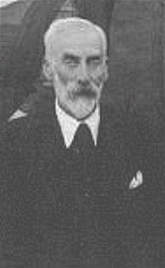 Benjamin Mansell Ramsey (Ref. 2) Benjamin Mansell Ramsey (Ref. 2)
Benjamin Mansell Ramsey wrote the text for "Teach Me Thy Way, O Lord" based on Psalm 27:11 and several additional Scripture verses. Mr. Ramsey also composed the tune, "Camacha," which we use today when singing this hymn.
Benjamin Mansell Ramsey (1849 - 1923) was an English organist and amateur composer (Ref. 1). He also was a well-known music teacher near Bournemouth, England. Mr. Ramsey composed songs, piano pieces, and carols. He also wrote works on music theory (Ref. 2). Wikipedia reports that Mr. Ramsey also conducted an amateur orchestra in the 1880s, and was involved in establishing the Bournemouth Municipal Orchestra in 1893 (Ref. 1). He is best known for his hymn tune, "Camacha," and the text he wrote for "Teach Me Thy Way, O Lord" in 1919. For those of you who are interested in geography, Bournemouth is located on the south coast of England (see map, Ref. 3). Scripture Allusions
I suggest that you refer to the attached hymn sheet music for the following discussion of the Scripture verses and the hymn text (Ref. 4).
"Teach me Thy way." Mr. Ramsey skillfully wrote this hymn around the Biblical phrase, "Teach me Thy way." He included the phrase, "Teach me Thy way," 13 times in verses one through four. In the Old Testament, the Way of the Lord referred to keeping God's commandments (Deuteronomy 5:33, Ref. 5). In Joseph Benson's Commentary, the phrase "Teach me Thy way, O Lord" means "What course I shall take to please thee, and to discharge my duty, and to save myself from ruin" (Ref. 6). David, the Psalmist, asked God to teach him God's way in Psalm 27:11 and Psalm 86:11. Psalm 25:4-5 is similar. David’s request to God, "Teach me Thy way, O Lord," is an excellent example for us to follow (Ref. 5). "Thy guiding grace afford" (hymn, verse 1). These words call to my mind Jesus' promise in John 16:13, "But when He, the Spirit of truth, comes, He will guide you into all the truth." Jesus promised us as believers that the Holy Spirit will guide us. The Greek word for guide in John 16:13 is hodégeó, which literally means "to show the way" (Ref. 7, Ref. 8). Now we can see the close connection between the prayerful hymn words in verse 1, "Teach me Thy way, O Lord" and "Thy guiding grace afford." As believers in Christ, we need the Holy Spirit's guidance to teach us God's way and truth in each of our life's circumstances.
"Help me to walk aright, more by faith, less by sight" (hymn, verse 1). This hymn phrase likely refers to Paul's statement in 2 Corinthians 5:7, "For we walk by faith, not by sight."
"Make Thou my pathway plain" (hymn, verse 3). Psalm 27:11 begins with the words, "Teach me thy way, O Lord" and ends with the words, "and lead me in a plain path, because of mine enemies" (KJV translation). The transliteration of the Hebrew word for plain is mishor (Ref. 9). In Psalm 27:11, mishor means literally a level place (free from obstacles) and figuratively, a place of safety, comfort, prosperity (Ref. 9). In the literal sense, a plain is a level area or plateau as compared to a mountainous area, for example, 1 Kings 20:22-25. In the figurative sense, David's prayer to make his pathway plain (Psalm 27:11) was to request that God would make his way safe (Ref. 10).
Mr. Ramsey wrote in verse 3 of the hymn, "Shine through the cloud and rain, through sorrow, toil, and pain; Make Thou my pathway plain, teach me Thy way!" With these words, we pray that God will make our way safe and that God will comfort us through these difficult times.
"Until the race is won" and "Until the crown is won" (hymn, verse 4). Mr. Ramsey likely drew inspiration from 1 Corinthians 9:24-25 which alludes to both of these phrases. "Don’t you know that the runners in a stadium all race, but only one receives the prize? Run in such a way to win the prize. Now everyone who competes exercises self-control in everything. However, they do it to receive a crown that will fade away, but we a crown that will never fade away."
Let us resolve to run the race with endurance that God has given us, fixing our eyes on Jesus, the author and perfecter of faith (Hebrews 12:1-2).
Listen. I suggest that you listen to one or both of the following Youtube videos to hear examples of how the hymn can be sung.
Traditional hymn in 3/4 time - The Metropolitan Tabernacle, London congregation singing "Teach Me Thy Way, O Lord" - Click here. This contemporary, 4/4 time solo arrangement of "Teach Me Thy Way, O Lord" in 4/4 time will uplift you. Click here.
Apply. In what aspect of your life today do you need God to remove obstacles and to make your pathway plain or safe? Pray and ask God to teach you his way and to give you his guidance.
References
1. https://en.wikipedia.org/wiki/B._Mansell_Ramsey 2. http://www.hymntime.com/tch/bio/r/a/m/ramsey_bm.htm 3. https://www.worldatlas.com/eu/gb/eng/where-is-bournemouth.html 4. https://library.timelesstruths.org/music/Teach_Me_Thy_Way_O_Lord/ 5. http://www.scriptureway.com/home/the-way-of-the-lord-old-testament 6. https://biblehub.com/commentaries/benson/psalms/27.htm 7. https://biblehub.com/greek/3594.htm 8. http://www.scriptureway.com/home/the-spirit-of-truth 9. https://biblehub.com/hebrew/4334.htm 10. https://biblehub.com/commentaries/cambridge/psalms/27.htm
Copyright: digitalskill / 123RF Stock Photo
"But when He, the Spirit of truth, comes, He will guide you into all the truth; for He will not speak on His own initiative, but whatever He hears, He will speak; and He will disclose to you what is to come. He will glorify Me, for He will take of Mine and will disclose it to you." (John 16:13-14)
"The Holy Spirit is our Guide, not only to show us the way, but to go with us by continued aids and influences." -- Matthew Henry (Ref. 1)
This lesson is the fourth in the series, "About the Truth." Today's lesson focuses on the role of the Holy Spirit as the "Spirit of Truth."
Consider.
Jesus promised his disciples that the Spirit of truth would come.
Jesus was speaking to his disciples on the evening before his death. In the beginning of John 16:13, Jesus told them that the Spirit of truth would come. God fulfilled the promise of sending the Holy Spirit, the Spirit of truth, beginning at Pentecost (Acts 2:1-4). Jesus' promise of sending the Holy Spirit, the Spirit of truth, continues for believers to this day (Acts 2:37-39).
The Spirit of truth guides believers into all the truth.
The Greek word in John 16:13 for guide is the verb, hodégeó. Strong's Concordance tells us that hodégeó means to show the way -- to teach, guide, lead (Ref. 2).
In Acts 8:25-40, we see an example of what it means to guide. An angel of the Lord sent Philip to the road that descends from Jerusalem to Gaza (Acts 8:26). There Philip met the chariot of an Ethiopian eunuch who was returning from Jerusalem. At the Spirit's direction, Philip joined the eunuch in the chariot (Acts 8:29). The eunuch was reading Isaiah the prophet. Philip asked him, "Do you understand what you are reading?" (Acts 8:30) The eunuch replied, "Well, how could I unless someone guides me?" (Acts 8:31, italics added) Philip explained the scripture to the eunuch and "preached Jesus to him" (Acts 8:35). As the result, the Ethiopian eunuch believed that Jesus Christ is the Son of God (Acts 8:37), and Philip baptized him (Acts 8:38). Note what Jesus said in John 16:13. "He (the Spirit of truth) will guide you into all the truth." In his commentary, Charles John Ellicott (1819–1905) says that the words, "all the truth," mean that the Spirit of truth "will be their guide into the fulness [sic] of truth." Ellicott adds, "The promise has special meaning for the disciples to whom it was spoken; but it holds good for every disciple who seeks to know the truth" (Ref. 3, Ref. 4). The Spirit of truth speaks what he has heard from the Father and the Son.
The Holy Spirit does not speak from himself. The Holy Spirit fulfills his mission when he speaks truth directly from the Father and Son to the believer. The King James Version translates the verse well. "When he, the Spirit of truth, is come, he will guide you into all truth: for he shall not speak of himself; but whatsoever he shall hear, that shall he speak" (John 16:13, italics added).
The Spirit of truth glorifies the Son.
Jesus said, "He will glorify Me, for He will take of Mine and will disclose it to you" (John 16:14). The Greek word for glorify in John 16:14 is doxazó, which means make glorious, honor, magnify (Ref. 5 below). Doxazó is very similar to the Greek word doxa, which means to honor, praise, worship (Ref. 5). When we sing the Doxology in a worship service we express our praise and worship of God (Ref. 6). When the Holy Spirit guides us into truth, it is an act of worship that glorifies Jesus, the Son of God.
Prayer. Thank you, Lord, for sending the Spirit of truth to be with us and to guide us into all of your truth.
Related Lessons
"God's Truth in the Old Testament" (Psalm 119:160) "Jesus is the Truth" (John 14:6) "Know the Truth (John 8:32)" "Jesus - Witness to the Truth" (John 18:37)
References
1. https://biblehub.com/commentaries/mhc/john/16.htm 2. https://biblehub.com/greek/3594.htm 3. https://biblehub.com/commentaries/john/16-13.htm 4. https://en.wikipedia.org/wiki/Charles_Ellicott 5. James Strong, "The New Strong's Exhaustive Concordance of the Bible," Thomas Nelson Publishers, 1995 - note, based on the King James Version of the Bible 6. http://www.hymntime.com/tch/htm/d/o/x/doxology.htm
"Is there no balm in Gilead? Is there no physician there? Why then has not the health of the daughter of my people been restored?" (Jeremiah 8:22) Consider. Would you like to receive the balm that heals us unlike any other? Jesus Christ is the only balm that can heal our sin sickness. Only Jesus can make us whole. "There is a balm in Gilead to make the wounded whole. There is a balm in Gilead to heal the sin-sick soul" (African-American spiritual). Biblical Background. Gilead was a mountainous part of ancient Palestine, east of the Jordan River now corresponding to northwest Jordan (Ref. 1, Ref. 2). Gilead was known for its healing balm (Jeremiah 46:11). We first see balm (mastic) mentioned in scripture as precious merchandise coming from Gilead (Genesis 37:25). Joseph's father, Israel (Jacob), sent balm as a present to Joseph as lord of the land of Egypt (Genesis 43:11). 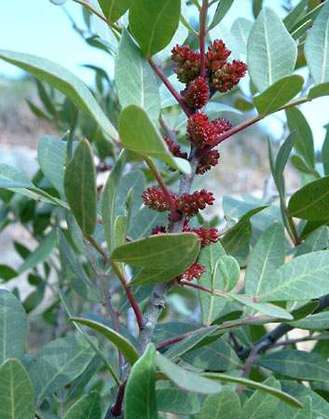 Mastic Tree (Ref. 3) Mastic Tree (Ref. 3) The prophet Jeremiah asked these questions, "Is there no balm in Gilead? Is there no physician there? (Jeremiah 8:22). Judah had turned away from the Lord and had completely ignored repeated warnings of judgment (for example, Jeremiah 5:20-31). Spiritual balm, God's salvation and healing, was available; however, the people were not seeking God. Spiritual balm through the priests and prophets was ineffective because "the prophets prophesy falsely, and the priests rule on their own authority" (Jeremiah 5:31). About the Spiritual, "There is a Balm in Gilead." "There is a Balm in Gilead" and other African-American spirituals came out of the period of slavery in America (1619-1865; Ref. 4). This spiritual is evidence that African-American Christians knew and trusted Jesus for salvation and healing despite their condition on earth. African-American Christians answered Jeremiah's question with a resounding "Yes, there is a balm in Gilead" (Ref. 5). The message of "There is a Balm in Gilead" still applies today. Despite whatever condition we are in, or whatever misery or difficulty we are going through, Jesus can heal our wounds and make us whole. Apply. In what area of your life do you need the healing balm of Jesus Christ today? Listen. I encourage you to listen and enjoy these two beautiful and moving presentations of "There is a Balm in Gilead." "There is a Balm in Gilead" - Adventist Vocal Ensemble (well known on BBC). "There is a Balm in Gilead" - East Carolina University Chamber Singers. References 1. http://biblehub.com/commentaries/jeremiah/8-22.htm 2. https://www.britannica.com/place/Gilead-ancient-region-Palestine#ref130865 3. https://www.britannica.com/plant/mastic-tree 4. https://www.infoplease.com/timelines/history-slavery-america 5. https://www.umcdiscipleship.org/resources/black-history-month-there-is-a-balm-in-gilead To see a hymn music video about inner healing, click on "Good News of the Kingdom" by Whitney V. Myers.
For articles about Scripture Allusions (Bible References) in other hymns, refer to "Scripture Allusions in Hymns" by Whitney V. Myers. |
Daily Bible Verse(Click the link above) AuthorMr. Whitney V. Myers. Christian. For more information, please visit the Author Page. Posting ScheduleI plan to provide new postings about once a month. Planned Topics(subject to change) Recent Posts(most recent three months) Popular Posts(top 10) Categories
All
Archives
July 2024
|
|
Copyright 2018-2024 Whitney V. Myers |
Listed in Feedspot's Top 100 Bible Study Blogs and Websites |
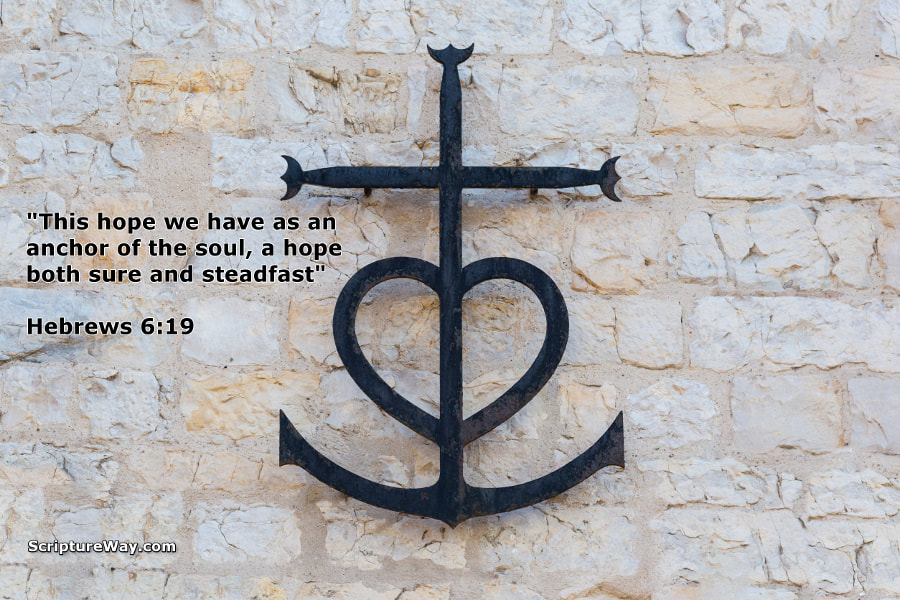

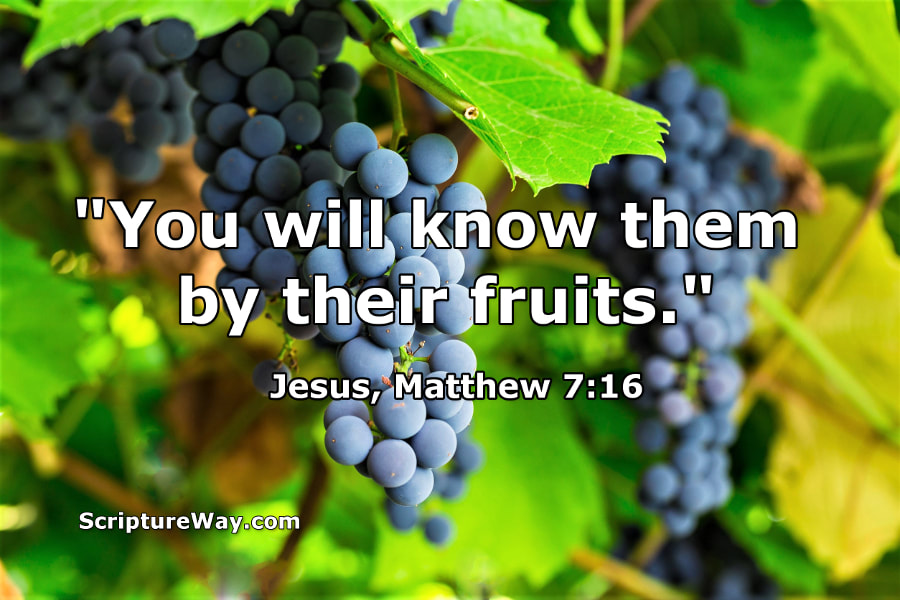
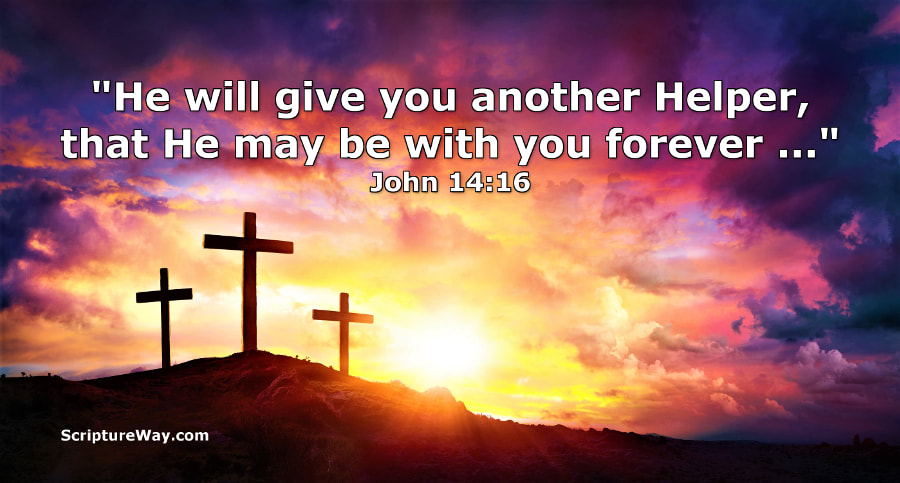
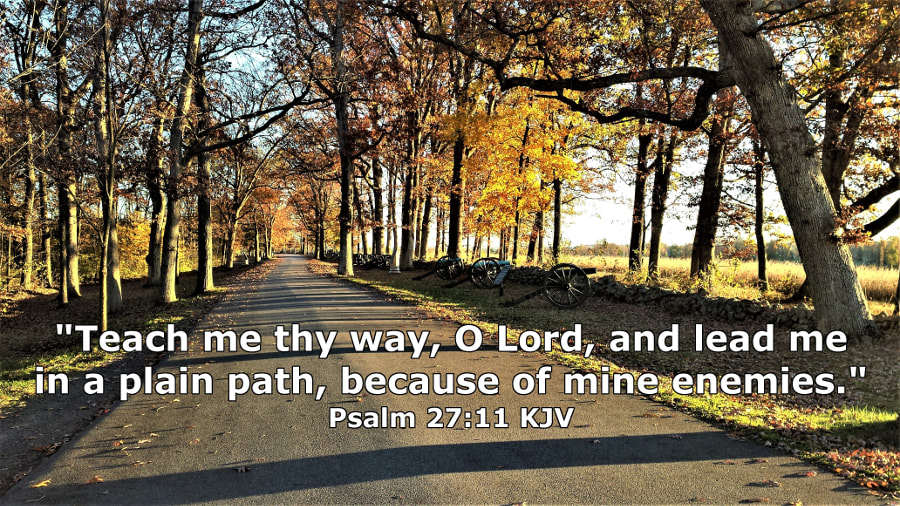
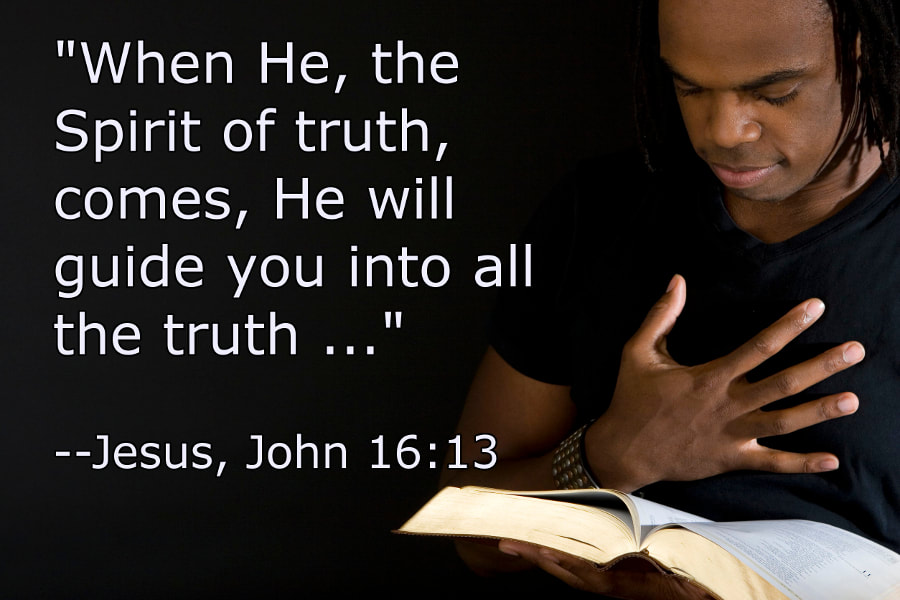
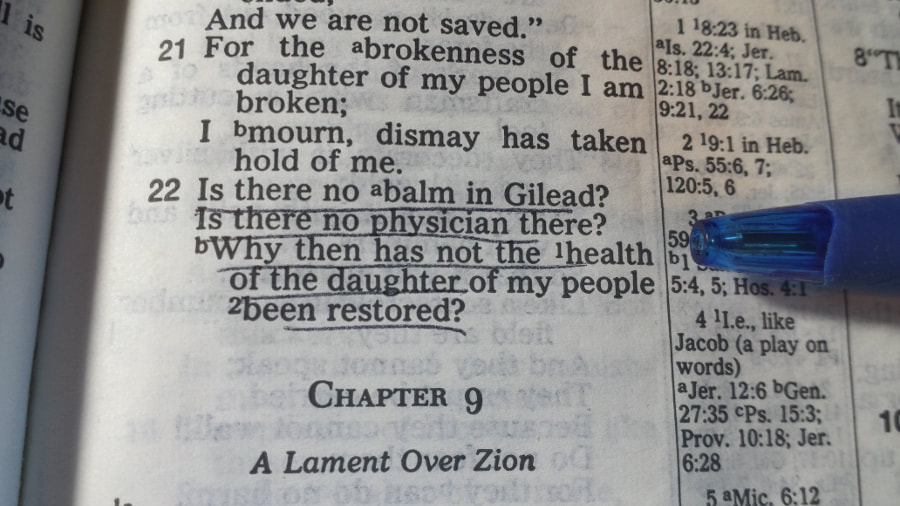
 RSS Feed
RSS Feed
